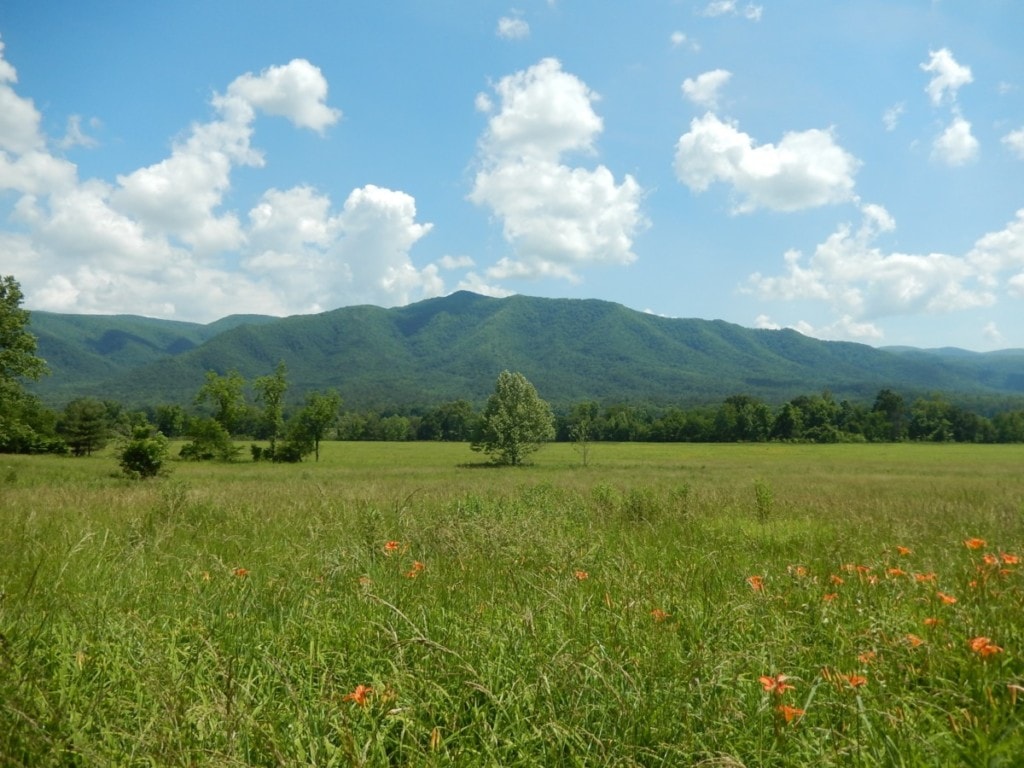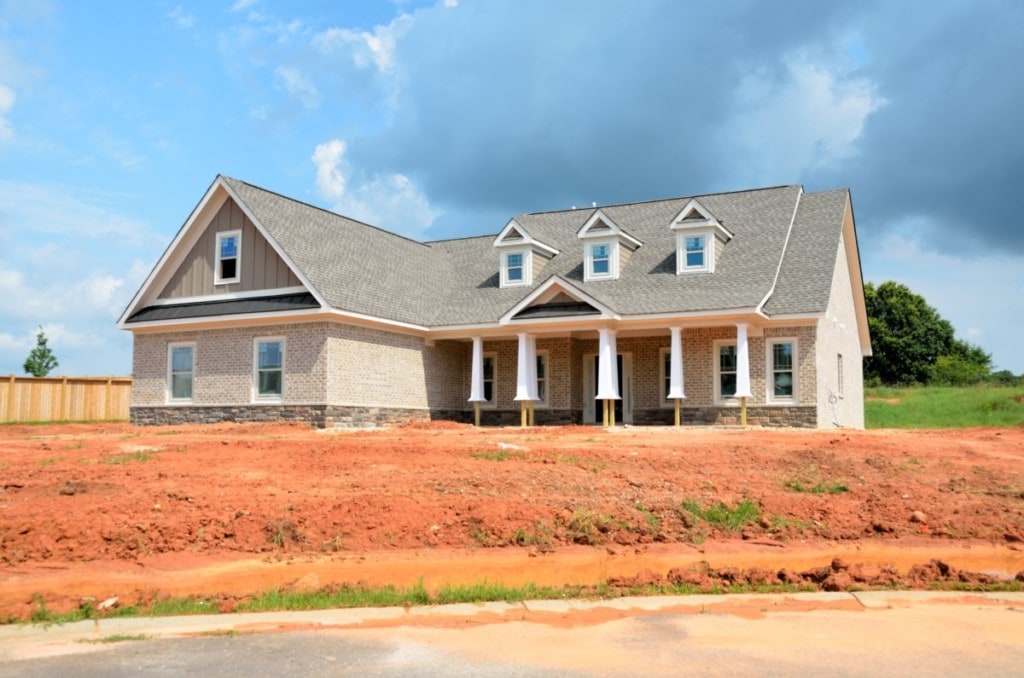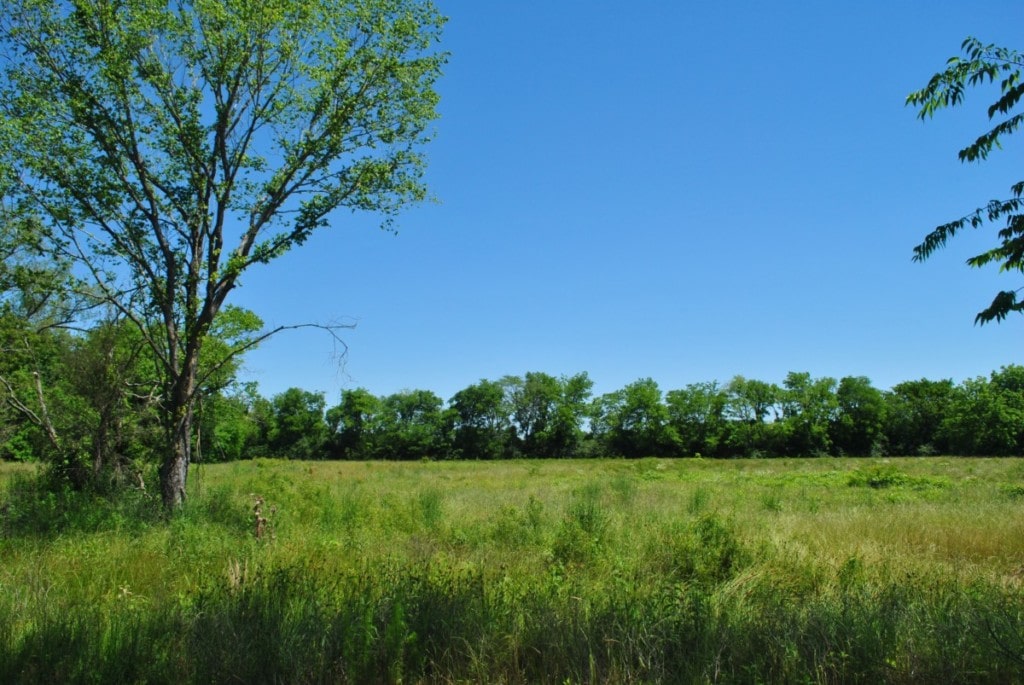Buying land involves a different set of considerations than buying a residential property. If you have dreams of finding a special piece of land and building a home perfect for you and your family, you’ll want to think about a number of things before making your purchase. Here are 11 questions you should be asking and finding answers for on how to buy land.
1. How will you finance the land?
One of the most important things to consider when buying land is how you will finance it. It’s common for buyers to pay all cash for land because getting a loan for this type of purchase can be difficult. However, if you don’t have enough savings to finance the land with cash, you can get what’s called a land loan.
Land loans are considered riskier investments for a bank than a typical home mortgage. This is because it can be more difficult to sell land than it is to sell a home. So, it’s harder for the bank to recoup its money if you default on payments. To reduce the risk, some lenders may require a large down payment of up to 50 percent of the purchase price.
The kind of land loan you’ll need depends on the type of land you’re interested in buying. There’s financing available for raw land as well as improved land that has already seen some development. If you need a raw land loan, be prepared to pay a high-interest rate. In addition to looking at your background and credit, your lender might want to know details about what you intend to do with the land before they offer to finance.

Get pre-approved and secure your dream home
Work with a lender to find the right loan for the home you love.
2. How is the property zoned?
Get pre-approved and secure your dream home
This is a crucial consideration when you purchase land where you’ll eventually build a home. Suppose the property is zoned for commercial use, and there are existing or planned commercial properties around it. In that case, it’s a long shot that you’ll successfully petition to get it rezoned for residential development. If it is already zoned residential, you’re one step further down the road.
You’ll want to check with the county zoning office where the property is located to find out any restrictions and make sure it’s possible to build a home. The property’s zoning will help you understand any future projects planned for the land or surrounding areas. Local governments, public or private utilities, or other businesses may have plans for new roads or large office complexes that could affect the land value.
3. How desirable is the parcel?
Just like residential property in an existing developed community, the cost of a parcel of land can increase based on its relative desirability. For example, if the lot lies within a highly ranked school district, you’ll likely pay more than if it’s a rural lot with no surrounding or nearby developments. There are four factors to consider as you determine the desirability of land.
Location: What else is located nearby? If the land is close to a private golf course, a busy retail center, a power plant, or a garbage dump, it will affect the lot’s cost accordingly.
Topography: Many less-experienced land buyers assume that if a parcel of land is for sale, it’s buildable. This is not always the case. You need to look at the type of soil, the number of trees, the terrain’s flatness, and elevation changes. These all affect how much it will cost to build on the land, and if it is buildable at all. For example, different types of soil could prevent you from building a basement. If the soil is rocky and hard, excavating a basement may be out of the question. A marshy area may have other restrictions, or in a wooded area, you may only be allowed to clear a specified number of trees.
Hills: If the land lacks enough flat area to build, you will have to pay more to have it flattened and graded adequately to ensure it won’t flood once a home is built.
Environmental concerns: Are there any environmental dangers that could affect your future home’s safety, or any endangered plants or animals living on the property? You may not have the option to build if any endangered wildlife or plant species are known to be in the area.

4. Does the property have road access?
Especially in a less-developed area, lack of road access can be a problem. If the land you’re considering is not accessible from a main road, highway, or frontage road, you may have to cross a neighbor’s land to reach your property. If that’s the case, you’ll need an easement stating you have a right to use their land to reach your land.
Visit your local County Assessor’s or County Clerk’s office to see if there are any easements recorded, which will allow you to build a road or use an existing one. You may end up incurring additional costs to build and pave a road if there isn’t one.
If there is a road, you’ll want to determine who maintains it, which can be found in the easement. Oftentimes, the two parties in the agreement share equal responsibility for maintenance and upkeep. You may need to come up with a formal agreement that specifies who will plow in the winter and mow around it during the summer and how to handle and pay for repairs.
5. Are there utility hookups in the street?
If the lot is close to a city neighborhood, you might already have access to utility hookups. If not, you’ll have to do the research just like any developer and determine how to bring in standard utility lines for water, sewer, electric, natural gas, phone, and fiber optic cable. These lines will be an added expense if the lot is not developed already, or you may need to pay extra because the utility hookups are further away.
If the lot doesn’t have access to a sewer system, you will need to order a percolation test to determine if it’s possible to install a septic system. Because a private septic system involves a series of pipes that empty wastewater deep into the ground where bacteria break it down, the condition of the land itself is critical. A percolation test will determine the rate at which the ground can absorb water. If the ground doesn’t meet a specific minimum rate, the lot will not support a septic system.
What are your water rights in case you need to dig a well? Water rights should be listed on the deed and are transferred upon the sale of the land. If you need to drill, you’ll have to contact the state’s Department of Resources or another department as only certain wells can be drilled with close supervision. A real estate agent can gather information about neighboring properties, how the owners use their water rights, and its specific purpose, whether it’s runoff or drinking water. If you are considering land that relies on an existing well for its water supply, you should have the well tested for production rate and quality of potable drinking water.
6. Is there an existing structure or other debris on the land?
If the land has an abandoned farmhouse or other building on it, you’ll need to account for the cost to remove the structure. You may need a junk removal company to come out and haul away any old machinery, garbage, or unwanted extras left on the property. Get an estimate so you know the cost of the removal service.
Contaminants: Old buildings may have been built from materials now considered contaminants, such as asbestos insulation and tiles, lead paint, and piping. If these materials are present, cleaning up the land becomes more complicated and costly. Old heating tanks, pipes, and appliances may have leaked toxic substances, which will require cleanup. Also, any chemicals or lubricants stored in a garage or shed can present a problem. There could also be underground storage tanks onsite, which, if not maintained, can leak into the soil and cause groundwater contamination.

7. What are the size, shape, and dimensions of the property?
The county will have a plot map for the land you’re thinking about buying. It will show the size, shape, and dimensions of the property. A land planner can help you research every possible aspect of the land that will affect whether any structures can be built on it, such as soil type, level of the water table, vegetation, wetlands, slope, and road access.
8. What are the required building setbacks?
When researching how to buy land, you’ll want to learn about setback ordinances, which are property laws governing property lines and boundaries. A setback is the required distance from the property line for any structures. If the lot is small, you may find you won’t be able to build as large a house as you hoped because the setbacks dictate you don’t have enough space.
For example, if the lot has 20 feet of structure setbacks from either side, and the lot is only 50 feet wide; it means your home can be no more than 10 feet wide. Unless you plan to place a mobile or tiny home on the land, this lot probably will not work.
9. What is the area around the land like?
Is the lot close enough to local conveniences and amenities? These can include gas stations, grocery stores, emergency services, and hospitals. Most people want to be reasonably close to amenities and creature comforts.
What is the size and style of adjoining properties? If adjoining-lots are developed with well-landscaped houses of approximately similar size and style, the property might be part of an HOA. This isn’t necessarily a problem, but know that if you buy the lot, your house may have to be a specific style and size, which can cost more than your original plan.
Are there any strange smells and sounds? Drive the area around the land you are considering to be sure it’s not next to a dump (or within 5 miles downwind), so you know you’ll be able to enjoy the backyard and open windows. Also, look for construction close by or a quarry operation. While neighborhood construction will likely end in the next 1-2 years, depending on the area, a quarry is a business, and you can expect truck traffic for years to come.

10. Is the property in a flood zone?
A land survey or your county office should be able to tell you if the land is in a flood zone. At the very least, a flood zone location will raise your insurance premiums. It also means you will have to be extra careful when you build and take all proper precautions. You will want to select a builder who has experience building up the land and grading it to pitch away from the house to prevent water from flowing right into the basement.
11. Is there any potential hidden value on the land?
Does the area have a history of landowners finding natural resources or minerals such as coal or natural gas? A geological survey of the land or your county office will tell you if something valuable lies under the surface. You might not only find a dream lot but something with added value. When you look for and research how to buy land, keep these 11 questions in mind so you avoid buying land you won’t be able to develop or sell in the future if you choose not to build. Walking through each of these points on your own – or with a real estate agent who specializes in land – can help you find the ideal lot for your dream house.



























 United States
United States Canada
Canada